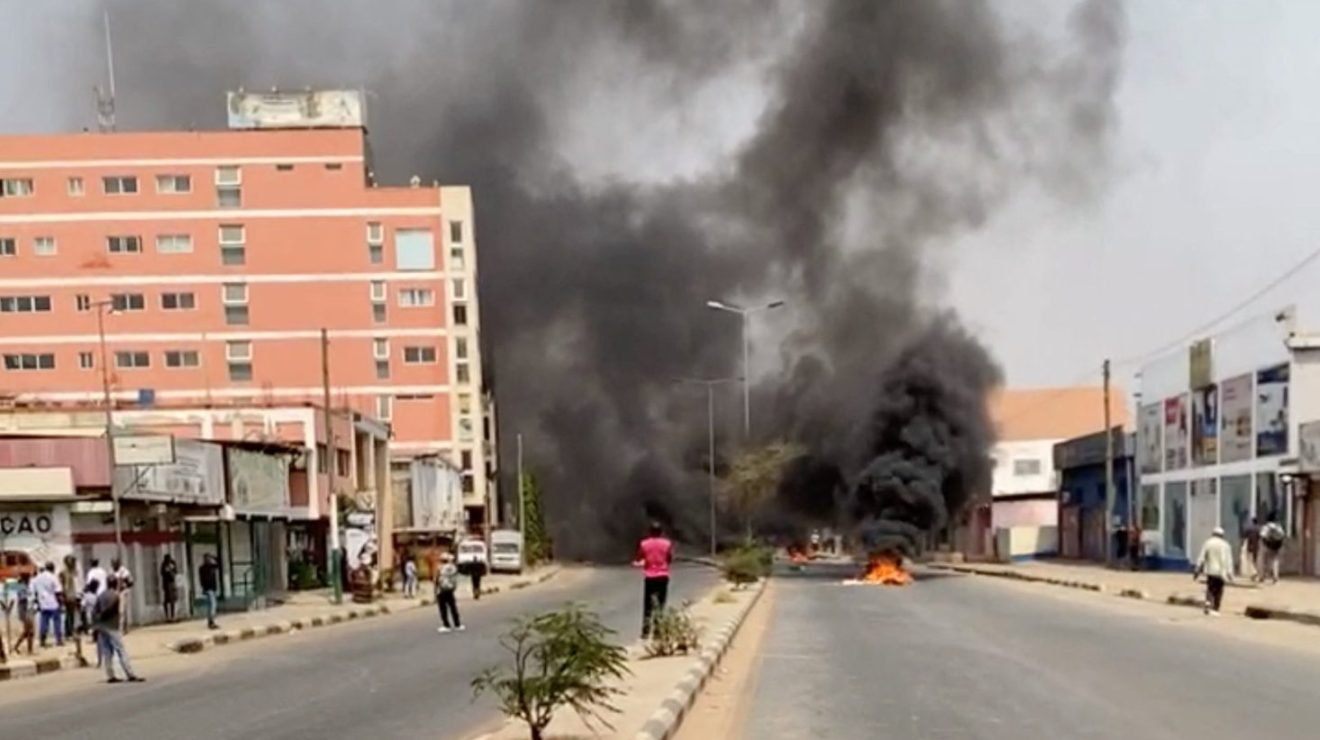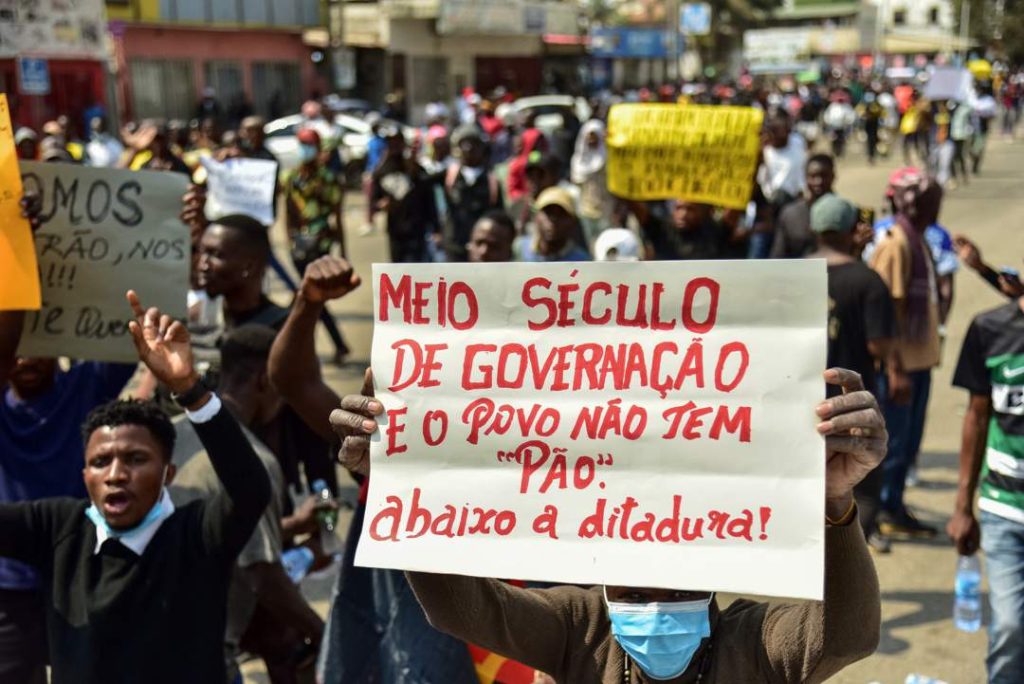The unrest, fueled by soaring costs of living and transport fares, quickly escalated into clashes between demonstrators and police, resulting in multiple deaths, numerous arrests, and widespread looting, according to local media and police statements.
Angola Fuel Price Hike Sparks Violent Protests Amid Economic Hardship

By Bheki Dlamini
Luanda, Angola — Protests erupted violently in Angola’s capital on Monday, July 28, following a government increase in diesel prices by one-third earlier this month.
The unrest, fueled by soaring costs of living and transport fares, quickly escalated into clashes between demonstrators and police, resulting in multiple deaths, numerous arrests, and widespread looting, according to local media and police statements.
Rising Fuel Costs and Public Backlash
Angola, a major oil producer in Southern Africa, raised the price of diesel from 300 to 400 kwanzas per litre (approximately from 33 to 44 US cents) on July 4.
This increase is part of a broader, phased plan to eliminate costly fuel subsidies that in 2024 accounted for roughly 4% of the country’s economic output. The government aims to reduce fiscal pressure by aligning fuel prices with market values.
READ MORE: Mozambique Seeks to Prosecute Opposition Leader Venancio Mondlane Over Post-Election Unrest
However, this policy has triggered significant hardship for ordinary Angolans. Minibus taxi associations responded by hiking fares by up to 50%, which sparked a three-day nationwide strike starting Monday, severely disrupting transportation services across Luanda.
The financial strain on households is compounded by inflationary pressures, as rising fuel costs translate into higher prices for essential goods transported by road, worsening food insecurity and daily expenses.
Protest Eruptions Turn Deadly
What began as peaceful demonstrations rapidly deteriorated, with reports from Novo Jornal and other local outlets confirming at least three deaths, including one police officer, during the clashes. Police deployed tear gas, smoke grenades, and fired warning shots to quell the unrest.
Authorities confirmed widespread looting of shops in the capital, prompting arrests, though the exact number of detainees has not been disclosed. Protesters blocked roads and confronted security forces in multiple districts, reflecting deep frustration with rising living costs and economic stagnation.
The National Association of Taxi Drivers of Angola (ANATA) described the strike and protests as a “sovereign decision” born from “the real difficulties faced daily by thousands of workers in the sector.”

According to local activists and observers, the fuel price hike is a tipping point amidst a broader crisis of poverty, hunger, and unemployment affecting many Angolans. As reported by the BBC, demonstrators carried placards with slogans like”Our Patience Has Limits” and “Hunger Doesn’t Wait,” capturing the anger over economic hardship.
READ MORE: Kenya Police Open Fire on Protesters as Saba Saba Anniversary Marked by Unrest
This wave of protests follows similar unrest in 2023, triggered by previous petrol price increases that also resulted in fatalities and government concessions.
Recent weeks have seen repeated demonstrations in Luanda and other provinces, underscoring mounting public discontent with government economic policies and social inequalities.
Broader Implications for Food Security and Economic Stability
The price hikes exacerbate Angola’s challenges with food security, which is intricately linked to fuel costs in this oil-dependent economy. Transportation fare increases raise food prices, stretching thin the budgets of vulnerable households.
This local crisis mirrors continental trends identified in recent UN reports, highlighting rising hunger in Africa due to inflation and economic shocks. Increasing costs of fuel and transport not only impact daily survival but also threaten broader economic growth and social stability.
Government Response
While Angola’s finance minister has reiterated the plan to phase out fuel subsidies to stabilise public finances, authorities face escalating pressure to balance fiscal responsibility with social welfare.
In the immediate term, the government contends with calming further unrest, restoring order, and addressing the underlying grievances expressed by protestors, including calls for relief on rising transport costs and support for struggling families.
Issue Details
- Fuel Price – Increase Diesel price raised by 33% to 400 kwanzas/liter on July 4
- Public Reaction – Minibus taxi fare hikes up to 50%; 3-day strike initiated
- Protest Consequences – At least 3 killed (including a police officer); numerous arrests; looting reported
- Government Subsidy Impact – Fuel subsidies ~4% of GDP in 2024; phased removal ongoing
- Previous Unrest – 2023 petrol price hike sparked deadly protests
- Economic Impact – Rising transport costs boost food prices, worsen poverty
The violent protests in Luanda reflect the severe socioeconomic pressures facing Angola’s population amid gradual subsidy removals. As public dissent escalates, the government’s challenge lies in managing fiscal reforms while safeguarding social stability and food security, a balancing act crucial for Angola’s economic future and peace.
Subscribe to Our Newsletter
Keep in touch with our news & offers
Thank you for subscribing to the newsletter.
Oops. Something went wrong. Please try again later.










